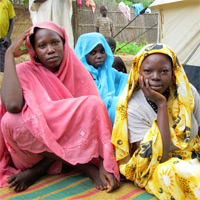
Nearly two years have passed since the governments of Sudan and South Sudan started negotiations on post-secession issues. Today, the two sides remain much as they were in July 2010, when the full negotiation teams first met for an initial exposure session and signed the guiding principles for the process. While no one expected the talks to be easy, the general expectation was that, at the very least, provisional agreements on the major outstanding post-secession issues could be reached before the Southern Sudan referen- dum in January 2011, or, at the latest, by South Sudan’s independence day in July 2011. The parties then could have concluded further modalities elaborating on the provisional agreements in the future and as necessary.
Two years on, the stalled negotiation process threatens the peace and stability of the two Sudans and the region at large. Therefore, its successful conclusion should be a priority for the two parties and the greater international community.
In retrospect, the fact that the process has dragged on for nearly two years is not surpris- ing, given the manner in which dynamics have unfolded around the negotiation table and events have developed within Sudan and between the two Sudans. In particular, the outbreak of violence in South Kordofan in June 2011, and in Blue Nile in September 2011, has undermined the already tenuous security environment and blocked progress on critical outstanding negotiation issues. Khartoum’s call for South Sudan to cease its alleged support of the Sudan People’s Liberation Movement-North, or SPLM-N — and for security modalities for the border to be concluded prior to negotiating further on other outstanding issues, including those related to the oil sector and citizenship — only further underscores the importance of the conflicts in South Kordofan and Blue Nile in the North-South negotiation process. North-South negotiations will continue to be stuck until the parties make progress on a ceasefire, humanitarian access, and transitional political arrangements related to continued fighting between the Sudanese government and the Sudan Revolutionary Front, or SRF, which includes forces from South Kordofan, Blue Nile, Darfur, and Beja.

